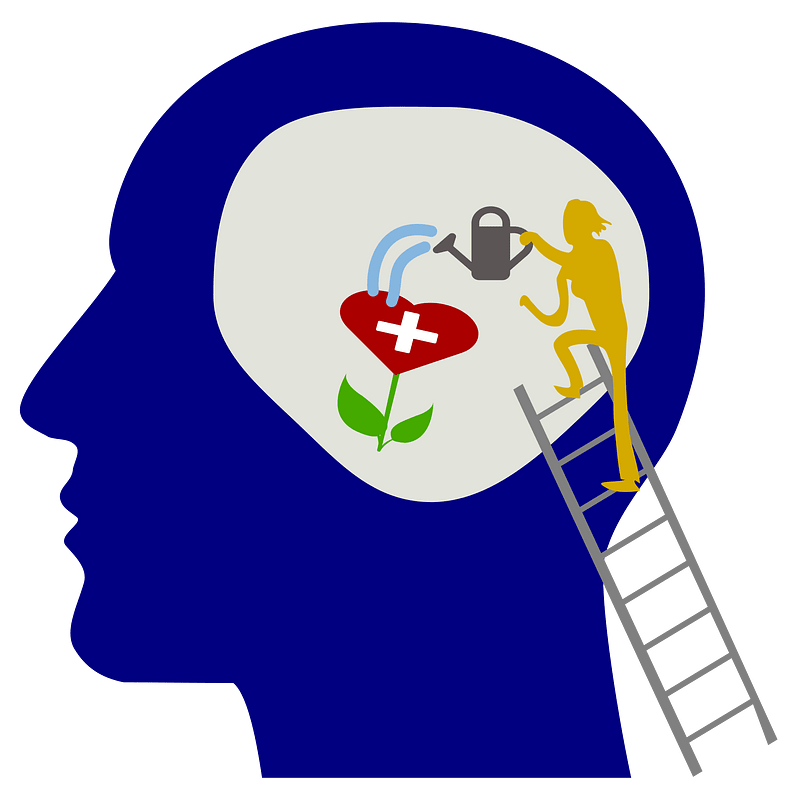Boost Brain Health: Nutrition, Exercise, and Brain Training
Category: Healthy Nutrition

Are you trying to improve your thinking skills? Do you feel your “thinking powers” are slowing down? Memory becoming challenging?
As we age, changes occur in all parts of the body, including the brain. As a result, some people notice that they don’t remember information as well as they once did. They aren’t able to recall it as quickly. This is quite normal.
They may also occasionally misplace things or forget to pay a bill. These usually are signs of mild forgetfulness, not a serious memory problem.
( I like to think I have many ” file drawers” and they are quite full! Over 70 years of collecting files! Many of those files are way in the back of the brain! And I have to crawl over the boxes to get to the files! (Fun thought that helps me not to fret.)
The problem becomes serious when you can’t remember what to do with the car keys? Or you look at your tooth brush and have no idea what it is for. That is when to consult your doctor.
I want a healthy brain: What can I do?
Start with nutrition. Your brain is not fed well when your diet is all about “eating out.” Good nutrition must be fresh and as free of chemicals as possible. Eat healthy. Eat fresh fruits and vegetables. Eat raw where it is possible. Check out the Food Pyramid and see how closely your daily food diet is to what is recommended. Include fatty fish in your diet at least once a week: Salmon, trout, albacore tuna, herring and sardines. With summer now, check out farmer’s markets. Field fresh!
Exercise. Your brain needs Fresh Air. A daily workout is the best kind for your brain. During this workout, the blood is pumping well and your heart is beating faster. This leads to the creating of neurons which improves your memory. Take a walk. Make checking the mailbox more than just up and down the driveway. Use the treadmill.
Sleep. Sleep does help your brain cleanse itself of potential waste products of the cells. This is where the 8 hour rule comes in. Set a bedtime ritual. And make time for a good night’s rest.
Even if you are laying quiet in bed and hopefully sleeping, your brain is far from asleep. During sleep, brain cells produce bursts of electrical pulses. These pulses cumulate into rhythmic waves.
Scientists at Washington University School of Medicine in St. Louis have found that brain waves help flush waste out of the brain during sleep. Individual nerve cells coordinate to produce rhythmic waves. These waves propel fluid through dense brain tissue. They wash the tissue in the process. (And we thought all the brain did was create dreams!)
For the brain to do such energy-demanding tasks, brain cells need fuel. The brain cells’ consumption of nutrients from our diet creates some metabolic waste in the process. This is where good nutrition comes in. What are we feeding our brain cells?
Now we know why sleep is so important. We are really hurting our brain to cut back on our sleep time. Even when we are asleep, our brain is quite active and demanding nutrition to do it’s work.
Things to do for our brain’s health:
Training! Yes, train your brain. Challenge your brain. Do activities outside of the norm. Consider memory puzzles; perhaps a new hobby. I have found crossword puzzles or word searches to my enjoyment. (I do notice when I don’t play.) Learn to be creative: Paint (even by number is great); garden; knit or crochet? Take time to exercise your brain outside of work. Stay away from video games. The tempo and the lights are not a good brain exercise.
Socializing. Get out of the house. Join a club. Interacting with others will provide a new perspective for your life. Socializing stretches your brain to organize ideas and to be able to relay those thoughts and ideas to others.
Don’t rely on take-out foods for your meals. Doesn’t work that way. Take-out should be a treat. Plan your meals. Make food important. Refresh yourself on the DRA of foods. Remember these are Daily Recommended Amounts.
But let’s first start with basic foods:
Foods that you can choose to add to your daily diet that help brain health.
We have read that coffee or tea can help make our brain sharper. I think this is one of the most common “foods” when it comes to alertness. It is all about the caffeine. It increases alertness, can improve your mood (that morning cuppa is soo good!), and it can sharpen our concentration. But be aware that caffeine can also interrupt sleep. Drink moderately and before 4:00; as caffeine can take up to 6 hours to clear your body.
Blueberries! Antioxidants. Anthocyanins. All great anti-inflammatory plant compounds. These help your brain to slow aging of the cells. They also improve your memory. Great to add to breakfast foods. Great snacks.
(Anthocyanins have been credited with the ability to influence cognitive and motor function. They can enhance memory. They also play a role in preventing age-related declines in neural function: cellular aging. They are found in: red and purple berries, grapes, apples, plums, cabbage, or foods containing high levels of natural colorants.)
Turmeric: A deep-yellow spice found in curry powder. Curcurmin has been shown to cross our blood-brain barrier and directly enter your brain. It is a potent anti-oxidant and anti-inflammatory compound. It helps memory and eases depression. (Try Indian foods!)
Broccoli: High in vitamin K, a fat that the brain needs for brain cells. It too provides anti-inflammatory and antioxidant effects to help protect the brain.
Pumpkin Seeds: And you thought it was just a Halloween treat! Pumpkin seeds are great sources of zinc, magnesium, copper and iron: great micronutrients for your brain. Add these to those raw salads. Remember salads don’t have to be with lettuce. Grouping together any raw vegetables can make a salad. Adding a sliced orange or any fresh fruit to the salad is a great boost.
Dark Chocolate! One good piece a day is beneficial for brain-boosting compounds, as dark chocolate includes: flavonoids, caffeine, and antioxidants. Here do your homework and make certain you are eating a healthy source of dark chocolate. There are too many poor chocolates available on the market. Dark Chocolate only (not milk chocolate) can boost memory, and mood.
Nuts: Be certain they are unsalted. Nuts can reduce neurological disorders, and help delay cognitive decline in older adults. Older adults need to watch sodium: look for unsalted nuts. The Vitamin E of nuts protects against free-radical damage of the cells. Nuts also contain healthy fats. Almonds. Walnuts.
Oranges: Vitamin C. One medium orange a day is needed for daily recommended values of vitamin C. Vitamin C reduces free-radical damage. It can protect against major depressive disorders, anxiety, schizophrenia, and Alzheimer’s disease. You can get good Vitamin C also from bell peppers, guava, kiwi, tomatoes and strawberries. (If you are relying on orange juice, read the label. Some orange “juices” do not have real oranges in them.)
Eggs: Vitamins B6, B12, folate, and choline. Choline helps mood and memory. Your liver does produce some, but you must get what is needed from foods for a needed amount. If you are egg intolerant or vegan, please look at supplementation by capsule or tablet.
Green tea: Also has components for good brain health. L-theanine is the amino acid. It also crosses blood-brain barriers. This ends with helping reduce anxiety and makes you feel relaxed. Green tea is also rich in polyphenols and antioxidants.
Polyphenols and antioxidants protect the brain from mental decline. They also help to reduce neurodegenerative diseases. Make certain you are relying on a good pure tea source. So many out there are not processed cleanly.
Foods rich in Polyphenols: Apples. Berries. Broccoli. Carrots. Chili peppers. Cumin. Dark chocolate (because cocoa is a major source of polyphenols). Flax seeds.
(Are you wondering what is the blood-brain barrier? Your blood-brain barrier (BBB) is a tightly locked layer of cells. These cells defend your brain from harmful substances, germs, and other things that could cause damage. It’s a key part of maintaining your brain health. It also holds good things inside your brain, thus maintaining the brain’s delicate chemical balance.)
I know I can’t eat all the amounts of foods needed to fulfil Daily Recommended Amounts. I do try to incorporate fresh fruits and veggies in my daily meals and snacks. I find as I age that my amount of food that I eat has declined. I’m just not that hungry anymore. This is where supplements do come in. I try to plan ahead that raw fruits and vegetables are available to eat and snack on.
But if you feel you are not getting what is needed for good brain health, let’s talk. Maybe we can tweek your food planning? Maybe you need supplementation? But let’s start with food planning. Let’s talk.
If you find yourself not eating all the DRA each day, that’s when a supplement becomes important. I trust Shaklee Corporation for my supplement needs.
You may also wish to consult with your doctor if you are not feeling well. Consult with your doctor if you find your memory is not what you want it to be.
References:
https://healthy.kaiserpermanente.org/health-wellness/healtharticle.boost-your-brainpower-with-3-supplements
https://www.nia.nih.gov/health/memory-loss-and-forgetfulness/memory-problems-forgetfulness-and-aging
#brainhealth #fitness #health #nutrition #mentalhealth #diet


Facebook Comments